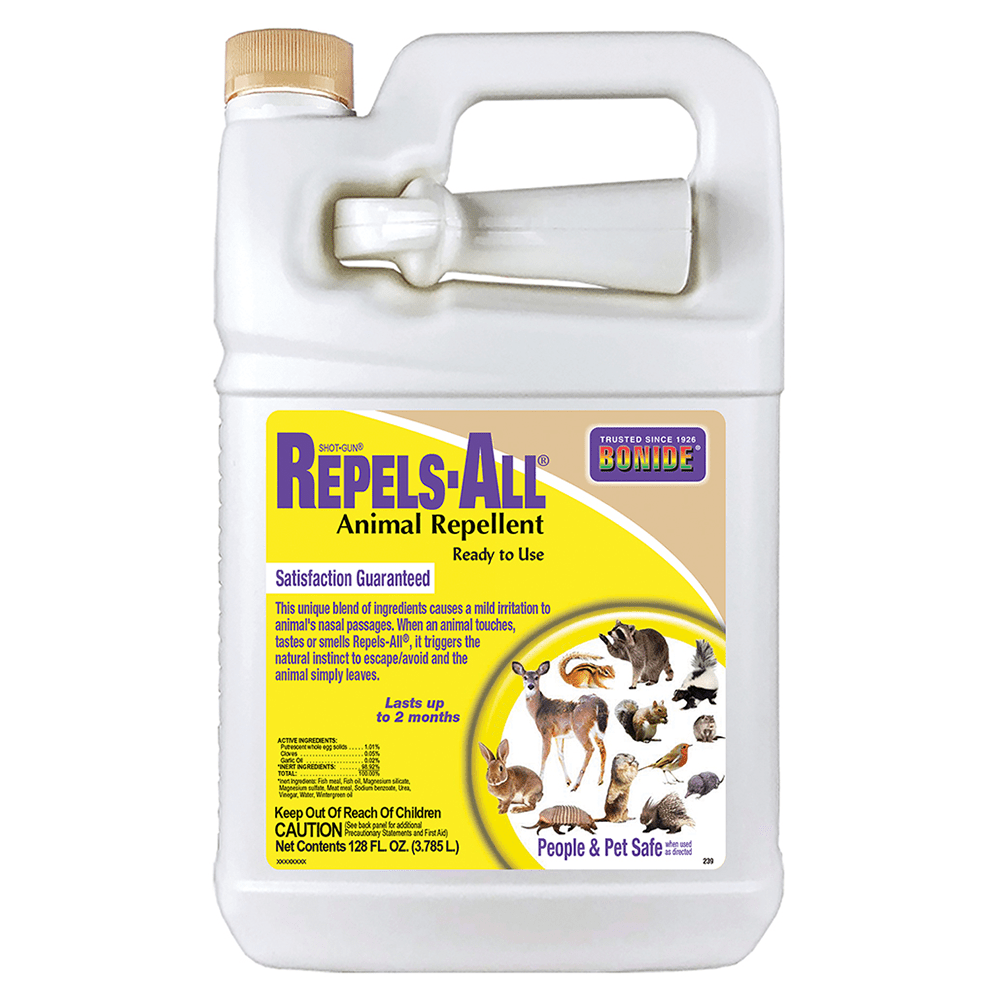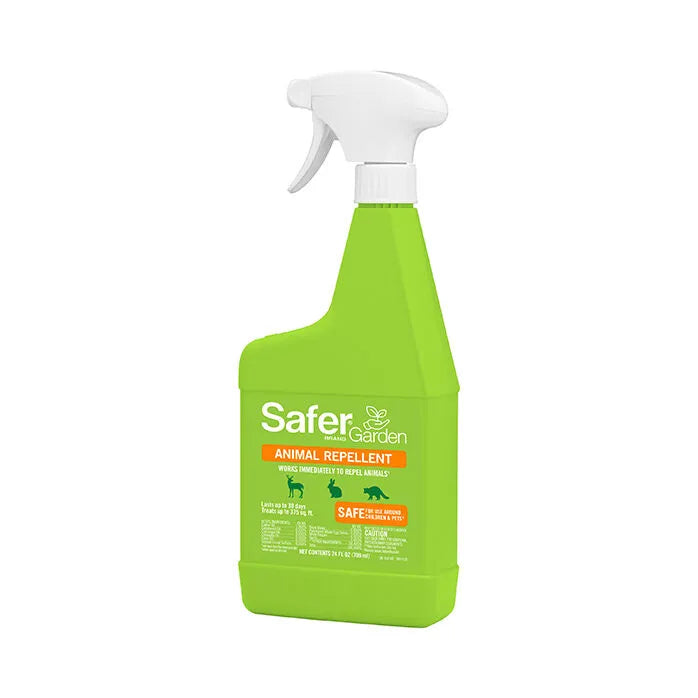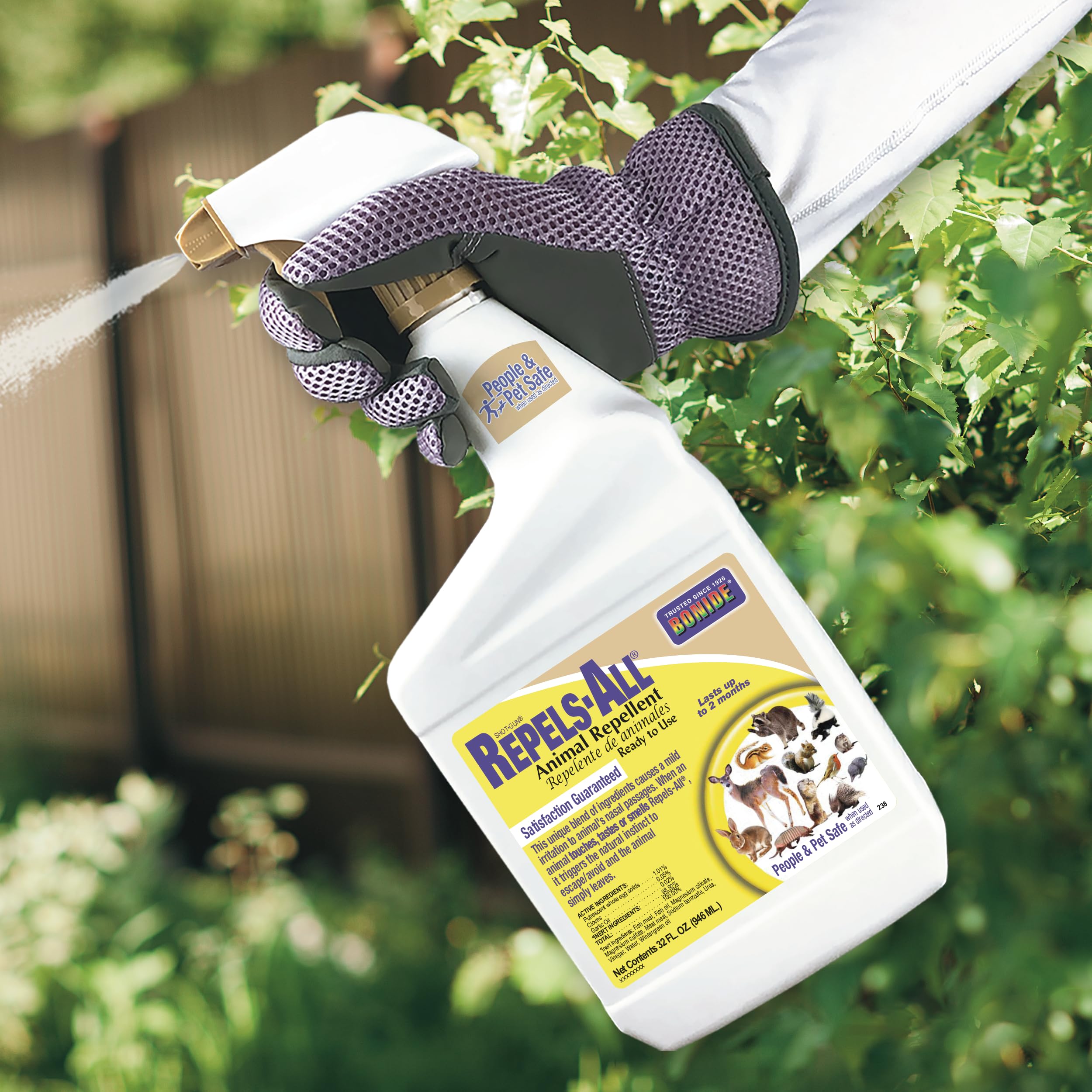Imagine stepping into your garden, greeted by the vibrant colors and sweet fragrances of your hard-earned blooms, only to find your plants nibbled away by uninvited critters. It’s frustrating, right?
You invest time and energy into creating a lush, thriving space, yet persistent pests seem determined to thwart your efforts. But what if there was a simple way to keep your garden safe and flourishing? The secret might lie in a powerful solution—animal repellent for gardens.
By the end of this article, you’ll discover how to protect your green sanctuary effectively, ensuring your plants remain untouched and beautiful. Dive in to learn how you can transform your garden into a haven free from pesky invaders.
JUMP TO TOPIC
Common Animal Pests In Gardens
Gardens often attract various animals. These animals see your garden as a buffet. They can cause significant damage to plants and soil. Understanding common pests helps in protecting your garden effectively. Let’s explore some frequent invaders.
Deer
Deer are graceful, but they can wreak havoc in gardens. They munch on flowers, shrubs, and vegetables. Their presence is often detected by droppings and hoof prints. Effective repellents can keep them at bay.
Rabbits
Rabbits are small, yet very destructive to gardens. They enjoy young plants and leafy greens. You might find chewed stems and leaves. Installing barriers can help deter these furry visitors.
Squirrels
Squirrels are curious and persistent. They dig up bulbs and eat seeds. Gardens with fruits and nuts are especially at risk. Use repellents to protect your garden’s produce from squirrels.
Birds
Birds are lovely but can be troublesome. They peck at fruits and vegetables. Some species dig for insects, disturbing soil. Netting and visual deterrents can help manage bird activity.

Credit: bonide.com
Natural Repellent Methods
Gardens can thrive with natural animal repellent methods. Essential oils and spices deter unwanted visitors effectively. Simple barriers like nets or fences keep gardens safe.
Are pesky critters nibbling away at your garden? You might be wondering if there’s a way to keep them at bay without resorting to chemical repellents. Well, you’re in luck! Natural repellent methods offer a safe and eco-friendly approach to protect your plants. These methods tap into the power of nature itself to deter unwanted visitors. Discover some simple yet effective techniques to safeguard your green space.Homemade Solutions
Why spend money on commercial products when you can whip up your own repellents at home? Homemade solutions are easy to prepare and often involve items you already have. One popular option is a garlic spray. Mix garlic cloves with water and a dash of dish soap. Spray this concoction on your plants to deter insects and small animals. Another idea is to use vinegar. Its strong smell can repel animals like rabbits. Just soak cotton balls in vinegar and place them around your garden.Plants With Deterrent Properties
Did you know that certain plants can naturally repel pests? Incorporating these plants with deterrent properties into your garden can be both beautiful and functional. Marigolds, for example, are known to ward off nematodes and other insects. Their bright blooms add a splash of color while keeping your garden safe. Lavender is another excellent choice. Its fragrance is pleasant to us but not to deer and rabbits. Consider planting it around the borders of your garden.Essential Oils
Have you tried using essential oils as natural repellents? They are concentrated and potent, making them highly effective. Peppermint oil is a favorite for repelling ants and spiders. Mix a few drops with water and spray the solution around your garden. Tea tree oil is another powerful option. It can deter mosquitoes and other flying insects. Apply it to small rags and hang them near your plants. Natural methods are not only safer but also kinder to the environment. Have you experimented with any of these techniques in your garden? Embrace nature’s solutions and enjoy a thriving, critter-free garden.Commercial Repellent Products
Gardening can be challenging when animals invade your space. Commercial repellents help protect plants from unwanted guests. These products keep animals like deer, rabbits, and squirrels away. Safe and effective, they ensure your garden remains beautiful and undisturbed.
Gardens are a sanctuary for many, but they can quickly turn into a battleground against unwanted animal visitors. If you’ve ever found your carefully planted flowers uprooted by rambunctious raccoons or your vegetable patch ravaged by rabbits, you know the frustration all too well. Commercial repellent products offer a solution to these problems, providing a range of options to protect your garden effectively. Let’s dive into some popular choices that can help you reclaim your outdoor haven.Sprays And Granules
Sprays and granules are among the most commonly used commercial repellents. These products are easy to apply and can be targeted directly at the areas most affected by animal invasions. Imagine stepping into your garden, armed with a spray bottle, and seeing the transformation over a few weeks. Your flowers begin to bloom untouched, and the vegetables thrive without any nibbling pests. Some sprays use natural ingredients like peppermint oil or garlic, which are unpleasant to animals but safe for plants and humans. Granules often contain similar scents and can be scattered around the garden’s perimeter or among specific plants. Choosing the right product can depend on your specific animal problem. Have you tried different products and found one that works wonders?Ultrasonic Devices
Ultrasonic devices offer a tech-savvy solution to your animal troubles. These gadgets emit high-frequency sounds that are unbearable to animals but inaudible to humans. Picture this: a silent guardian in your garden, warding off intruders without disturbing your peace. These devices require minimal maintenance and can cover large areas, making them ideal for expansive gardens. Some models come with motion sensors that activate only when animals approach, conserving energy and ensuring effectiveness. You can place them strategically around your garden to create a protective barrier. Have you ever considered using technology to keep your garden safe?Fencing Solutions
Fencing solutions provide a physical barrier that can deter persistent pests from entering your garden. While it may seem like a more labor-intensive approach, the results can be worth the effort. Envision a robust fence standing tall around your garden, keeping pesky critters at bay. Fences can range from simple wire meshes to elaborate designs that add aesthetic value to your space. Consider the type of animals you’re dealing with and tailor your fencing accordingly. For instance, a taller fence might be necessary if deer are your main concern, while smaller mesh could suffice for rabbits. Have you explored fencing as a way to secure your garden oasis? Each commercial repellent product has its unique advantages, and experimenting with them can lead to the perfect solution for your garden. Which one resonates with you?Diy Repellent Techniques
Gardens attract a variety of animals. Some are welcome. Others are not. DIY repellent techniques can help keep unwanted visitors away. These solutions are easy to make. They use simple household ingredients. This makes them cost-effective. Let’s explore three popular methods.
Soap And Garlic Spray
Soap and garlic spray is a strong deterrent. Mix minced garlic with water. Let it sit overnight. Strain and add liquid soap. Spray this on plants. The smell keeps animals away. It is safe for plants and humans.
Hot Pepper Mixtures
Hot pepper mixtures create an effective barrier. Blend hot peppers with water. Add a few drops of dish soap. Strain the mixture. Spray it around your garden. Animals dislike the spicy scent. This keeps them from nibbling on plants.
Vinegar Solutions
Vinegar solutions work well for deterring animals. Mix equal parts of vinegar and water. Spray this around the garden’s perimeter. The strong smell repels animals. It is a natural and safe option. Be careful not to spray directly on plants.
Preventative Garden Design
Designing your garden with animal repellent strategies can be effective. Preventative garden design involves selecting specific plants and features. These elements naturally discourage animals from entering. Let’s explore these techniques.
Strategic Planting
Certain plants repel animals due to their scent or texture. Garlic and onions deter deer and rabbits. These plants can be mixed with others. They provide a protective barrier. Use these plants around the garden’s edges. This method keeps animals at bay.
Barrier Plants
Plants with thorny or rough textures act as barriers. Roses and holly bushes are excellent choices. These plants create natural fences. Animals avoid these due to discomfort. Place them strategically around vulnerable plants. This minimizes animal intrusion.
Water Features
Water features can deter animals effectively. Installing fountains or ponds creates sound and movement. Animals are wary of unfamiliar environments. The sound of water can confuse them. This reduces their interest in the garden. Use water features wisely for best results.

Credit: vanputte.com
Safety And Environmental Considerations
Choosing animal repellents for gardens involves considering safety and the environment. Opt for natural solutions to protect plants while minimizing harm to wildlife and the ecosystem. Ensure repellents are non-toxic and eco-friendly to maintain garden health.
Gardening often attracts unwanted animal visitors. Using repellents safely is crucial. Harmful chemicals can hurt your plants and the environment. Safe and eco-friendly options exist. Choose wisely to protect your garden and local wildlife.Non-toxic Options
Non-toxic repellents are safe for gardens. They don’t harm plants or animals. Many natural ingredients work effectively. Essential oils, like peppermint and eucalyptus, deter animals. Garlic sprays and vinegar solutions are also popular. These options keep pests away without causing harm.Impact On Local Wildlife
Consider the impact on local wildlife. Some repellents disrupt animal habitats. Choose options that respect nature. Animals are part of the ecosystem. Using safe repellents helps maintain balance. This ensures gardens and wildlife coexist peacefully.Sustainable Practices
Sustainable practices benefit your garden and the planet. Use biodegradable products. Recycle or reuse containers. Try homemade solutions using kitchen ingredients. Sustainable choices reduce waste and pollution. They create a healthier environment for all. Adopt these practices for a greener garden. “`Monitoring And Adjusting Repellent Use
Monitoring and adjusting your animal repellent strategy is essential for a thriving garden. Repellents can lose effectiveness over time. Animals might adapt or seasonal changes may influence their behavior. Regular evaluations help maintain optimal repellent performance. Below, we explore key practices for effective monitoring and adjustments.
Regular Garden Inspections
Inspect your garden regularly to identify signs of animal activity. Look for disturbed soil, plant damage, or animal tracks. These clues help gauge the effectiveness of your current repellent. Frequent checks allow for timely adjustments before significant damage occurs. Create a routine for inspections that fits your schedule.
Adapting To Seasonal Changes
Animals change their habits with the seasons. Repellent strategies should reflect these shifts. During spring, emerging plants attract more animals. Increase repellent use to protect new growth. In winter, food scarcity might drive animals to your garden. Adapt your approach to these seasonal behaviors to maintain protection.
Feedback And Improvements
Gather feedback from your observations and experiences. Note which repellents work best and under what conditions. Use this information to refine and enhance your strategy. Experiment with different products and techniques. Keep records to track what improves garden protection. Continuous learning leads to a more effective repellent plan.

Credit: duncraft.com
Frequently Asked Questions
What Is The Best Repellent For Animals In The Garden?
Use natural repellents like garlic spray, or commercial options like animal repellent granules. Ultrasonic devices deter animals effectively. Always check for eco-friendly products.
How Do I Stop Animals From Eating My Garden?
Use fences to protect your garden from animals. Install motion-activated sprinklers to deter them. Apply natural repellents like garlic spray. Plant pungent herbs like rosemary around the garden. Regularly remove food sources and debris to keep animals away.
What Smell Do Wild Animals Hate?
Wild animals often dislike strong scents like ammonia, vinegar, peppermint, and citrus. These smells can deter them effectively. Additionally, garlic and chili pepper are also known to repel various wildlife. Using these natural repellents can help keep wild animals away from gardens and homes.
How Do You Make Homemade Animal Repellent?
Mix vinegar, water, and crushed garlic for a natural animal repellent. Spray around affected areas. Use cayenne pepper, water, and dish soap for another option. Essential oils like peppermint or eucalyptus can deter pests. Regularly reapply for effectiveness. Ensure ingredients are safe for pets and plants before use.
Conclusion
Choosing the right animal repellent can protect your garden effectively. Different methods suit different needs. Try natural options like garlic or pepper sprays. They are safe and easy to use. Ultrasonic devices can also help. They keep animals away without harming them.
Remember to reapply repellents regularly. Weather can wash them away. Consistency is key for success. Observe your garden and adjust your strategy as needed. Happy gardening! Enjoy a flourishing garden free from unwanted visitors.

